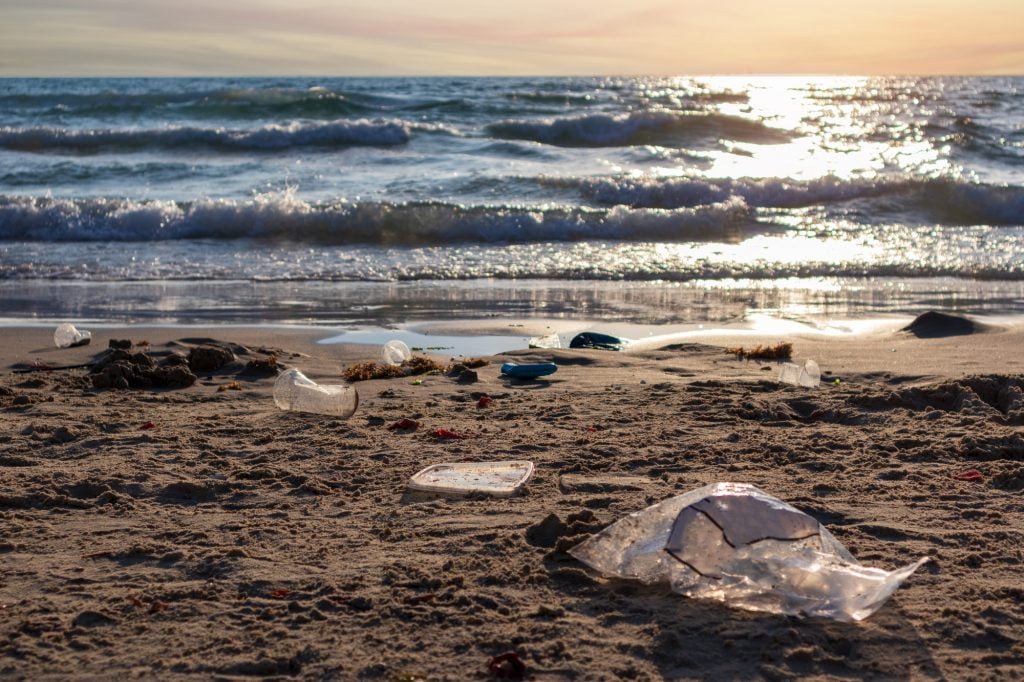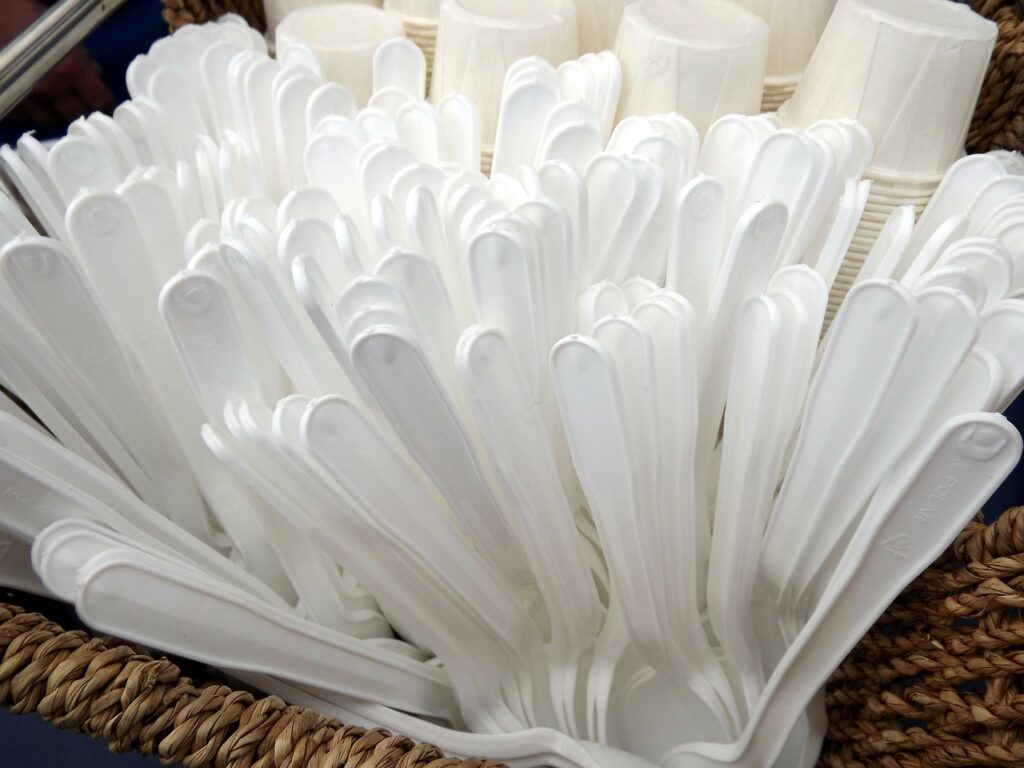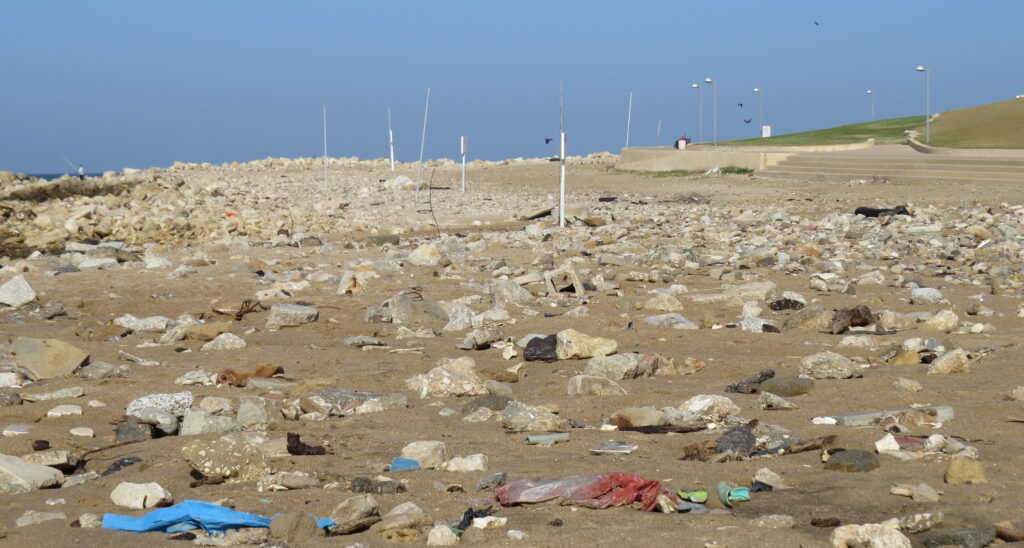The Israeli government has put forward a plan to double purchase taxes on single-use plastics and disposable plasticware in a bid to reduce consumption by up to 40 percent and help better protect the environment.
The Israeli Finance and Environmental Protection Ministries said in a joint statement on Monday that they will advance the proposal for approval by the Knesset’s finance committee and the new 100 percent tax on disposable utensils could take effect by early 2022
SEE ALSO: Israel Has A Severe Plastic Problem, But Real Change Is Possible
Israelis use an average of 7.5 kilograms (16.5 pounds) of single-use plastics per person every year, five times the amount in the European Union, the ministries said pointing to environmental research conducted on their behalf by a private company.
Plastic consumption in Israel has doubled over the past decade and some 90 percent of the waste on Israeli beaches is plastics, according to the research.

A 2019 report by the Israel Union for Environmental Defense (Adam Teva V’Din in Hebrew), a non-profit environmental organization staffed mainly by lawyers and scientists found that Israelis spend about NIS 2 billion (approximately $57 million) on single-use plastics every year. In other words, a single Israeli household spends an average of NIS 776 (about $221) a year on disposable plastic products. A separate report that same year found that, comparatively, Israelis produce twice the international average of plastic waste per person per day (0.309 grams vs 0.139 grams).
“We are drowning in single-use plastics, and we must all see its problematic influence on the cleanliness of the Earth and the quality of our lives,” said Environmental Protection Minister Tamar Zandberg in a statement on Monday.
Disposable plastic utensils cause significant environmental damage and their negative effects on public health are evident, the ministries said.
“The utensils quickly turn from a useful product to waste that sometimes lasts for thousands of years, taking up increasing space in landfills, increasing the costs of garbage removal, polluting the sea, open spaces, and public spaces and cementing our dependence on fossil fuels,” according to the joint statement.
Single-use plastics are not biodegradable and contribute significantly to marine pollution. They also produce microplastics, particles that are formed when plastics are broken down into small pieces due to prolonged exposure to the elements. Microplastics (usually between 5 mm to a few micrometers) are ubiquitous and have found their way into our daily lives as well. They can be found in the water we drink, in the air we breathe, and in products we eat, including table salt, sea salt, beer, and honey. One 2019 study found that the average person consumed on average 50,000 microplastic particles a year.
A greener vision
“The consumption of disposable plasticware in Israel is increasing at a rapid and unusual rate,” said Finance Minister Avigdor Liberman in the statement on Monday. “Economic incentives can guide the public to more environmentally-friendly behavior.”
Sign up for our free weekly newsletter
Subscribe“Like many countries around the world that are taking steps to reduce the use of disposable utensils, we also have a duty to take steps to reduce the use of these tools, while leading a significant consumer behavioral change,” he added.

According to a study conducted by the Ministry of Environmental Protection, doubling the price of plasticware — cups, plates, bowls, cutlery, and straws — to the consumer is expected to reduce usage by about 41 percent.
The ministries also referenced a tax instituted on plastic bags in large grocery chains in 2017 that it says helped cut usage by 80 percent and said the proposed tax on plasticware will be similar to previous taxes imposed on cigarettes and alcoholic beverages to reduce consumption.
‘A good start’

The proposed tax is a “good start” and shows that the new government is prioritizing environmental issues but more can be done, says Evelyn Anca, the director of programs for Plastic Free Israel, a grassroots organization promoting a plastic-free existence (or at least one with minimal plastic consumption).
“There is consumer sensitivity to prices so an increased price [on plastic disposable utensils] may help reduce usage and make the public think twice about buying [such items],” she tells NoCamels in a phone interview.
SEE ALSO: Through Awareness, Education And Cleanups, An Israeli Initiative Is Taking A Stand On Plastic
Anca says Israel has a known plastic problem and there are a few reasons why Israelis are “addicted” to plasticware including “convenience, our fast-paced lives, and kosher considerations.” Families with many children may not want to wash dozens of dishes every day and resort to plastic plates and utensils to make their lives easier, she explains.
“But even though it’s a good first step, we hope this initiative will eventually lead to an eventual ban on plastics,” says Anca, who is also an artist working on an exhibition titled “Love Death & Plastic” that will showcase artworks and installations made of plastic waste.
“There is still lots of work to be done in terms of legislation and initiatives. The government can put more efforts into enforcing existing laws, incorporating plastic pollution awareness into the education system at schools and providing support for municipalities and businesses that are looking for solutions,” she says.
Related posts

Resilient And Nutritious New Plant-Based Milk Aims To Make A Splash

Chocolate From Cultivated Cocoa Comes Without Environmental Toll

Plastic Fantastic: Startup Takes PVC Back To Its Crude Oil Roots




Facebook comments